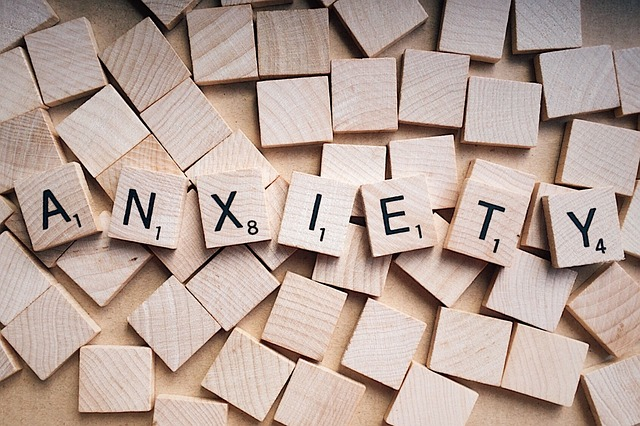Dr. Matthew Olesiak continues to make a significant impact in the medical field through his work at SANESolution and his dedication to evidence-based practices.
Anxiety Throat: Causes, Symptoms, and Treatment Options
You may be familiar with common anxiety symptoms like sweating and a racing heartbeat, but have you heard of anxiety throat? If you said “no,” you’re not alone. Anxiety throat is seldom mentioned in the list of symptoms, but it is as mentally and physically troubling as any other.
Anxiety Throat:
You may be familiar with common anxiety symptoms like sweating and a racing heartbeat, but the throat?
Anxiety throat refers to specific throat symptoms spurred by anxious feelings.
This throat cleaner and remedies post explores the reasons behind anxiety throat, helps you recognize the symptoms, and recommends effective treatment options to ease the discomfort. If you need more remedies for your throat then check out our Tightness in Throat and Sore Throat Causes and Remedies articles!

- New Report Says Your Brain Could Be the Key to Reducing Phlegm Over 50
- Doctor's "Leave The Throat Phlegm Behind" Tutorial Goes Viral With People Over 50
- Can You Relieve Throat Phlegm and Coughing In 60 Seconds A Day? This Doctor Says Yes
- How To Banish Phlegm When 50+ (Do This Every Day)
Short Summary
- Understand anxiety and how it can play a role in specific throat symptoms, such as a tight throat or the sensation of a lump in the throat.
- Identify signs of anxiety throat vs. other health conditions and seek appropriate medical attention as necessary.
- Practice techniques to relieve anxiety, such as breathing exercises, regular physical exercise, listening to music, meditating, and getting adequate sleep. Using a throat cleaner can also help relieve symptoms.
The Symptoms of Anxiety Throat
Anxiety throat refers to specific throat symptoms spurred by anxious feelings.
The symptoms of anxiety throat are varied and can include:
- The sensation of tight or tense throat muscles, a condition called muscle tension dysphonia
- A feeling that you have a lump in your throat (Globus sensation).
- A tight throat feeling that comes and goes
- A tightness in the thyroid area of the throat muscles
- Difficulty swallowing (dysphagia)
- The persistent sensation of something obstructing the throat or airway
- Throat tenderness
- Sore throat
Most of these symptoms involve feeling something stuck in your throat when there is none, a sensation called Globus, Globus pharyngeus, or Globus hystericus.
Do you ever feel like your throat is tight or tense, even when there is no apparent reason? This sensation can cause you to swallow frequently to loosen or clear your throat. The feeling of tightness can occur occasionally, often, or chronically. It may happen alone or precede, accompany, or follow other symptoms of anxiety.
If you’ve experienced any of the above, there’s a good chance your throat symptoms are due to anxiety.

What is anxiety?
According to the American Psychological Association (APA):
“Anxiety is an emotion characterized by tension, worried thoughts, and physical changes like increased blood pressure…Anxiety is not the same as fear but is often used interchangeably. Anxiety is considered a future-oriented, long-acting response broadly focused on a diffuse threat, whereas fear is an appropriate, present-oriented, and short-lived response to a clearly identifiable and specific threat.” (1)
In other words, anxiety is a feeling of uneasiness concerning an unknown or imprecise threat. It’s a mind and body reaction to the possibility of something happening rather than a known, specific threat.
For example, anxiety is the apprehension of walking down a dark side street alone in a strange neighborhood. This feeling is prompted by the possibility of a stranger or an animal attacking you rather than a direct threat. By contrast, fear occurs when a stranger or animal approaches you menacingly.

Anxiety vs. Anxiety Disorder?
According to Medical News Today, “Anxiety disorders form a category of mental health diagnoses that lead to excessive nervousness, fear, apprehension, and worry.” (2)
Anxiety disorders are the most common and widespread mental health disorders in the United States, affecting nearly 40 million people annually (3).
Panic disorder is particularly prevalent, with up to 11 percent of the people in the U.S. experiencing a panic attack each year (3a).
Being anxious when faced with new situations, such as a job interview, is normal. But you may have an anxiety disorder if the anxiety is severe, out of proportion to the situation, and/or interferes with everyday life.
There are several different types of anxiety disorders, including:
- Generalized anxiety disorder (GAD)
- Social anxiety disorder (SAD)
- Panic disorder (PD)
- Obsessive-Compulsive Disorder (OCD)
- Post-traumatic stress disorder (PTSD)
- Agoraphobia
- Phobias
These disorders have varying triggers and physical symptoms.

How can anxiety affect the throat?
Though upsetting, intrusive thoughts and worries are huge components of anxiety disorders, but the symptoms also manifest physically. How does this happen?
When a person faces danger, real or imagined, their brain releases stress hormones like adrenaline – a hormone and chemical messenger – which activates the fight-or-flight response, which prepares the body to fight or flee the danger. In a life-or-death situation, the person probably wouldn’t notice the physical sensations in their body triggered by the fight-or-flight response. But if the threat is minor, which is most of the anxiety-provoking situations we face in modern society, you’ll notice the physical sensations, and they will often increase your anxiety.
The physical symptoms of anxiety can include:
- Sweating
- Rapid heartbeat
- Rapid breathing (hyperventilation)
- Trembling
- Feeling weak
- Nausea
- Sleep difficulties
- Stomach pain
- Muscle tension
Note the last symptom: muscle tension. This muscle tension can extend to your throat and trigger throat inflammation, which can cause the sensation of a lump in your throat. In addition, hyperventilation, mouth breathing, and throat tension can lead to a sore throat.
We’ve already listed the symptoms of anxiety-related throat conditions toward the beginning of this blog post.

Is my throat symptoms anxiety or a medical condition?
Your throat symptoms are probably anxiety if they occur or worsen during highly stressful situations. As you become more relaxed, your throat will likely feel better.
If your throat symptoms don’t improve after the stress has passed and you become calmer, it may be a medical condition. Conditions and symptoms that can cause throat tightness, sore throat, and other throat issues include:
- Postnasal drip
- GERD (gastroesophageal reflux disease)
- Strep throat
- Thyroid disease
- Tonsillitis
- Rare tumors
- Pharyngeal inflammatory conditions
- Abnormal upper esophageal sphincter function
- Object stuck in the throat

You should also see a doctor if any of the following symptoms occur with the lump in the throat sensation or other throat issues:
- Fever
- Inflamed, swollen tonsils
- Cough
- Regurgitation
- A visible lump on your neck
- Hoarseness
- Vocal change
- Unintentional weight loss
How to Reduce Anxiety Throat
It may seem impossible to calm down when you’re in a state of high stress or anxiety. However, the following stress management techniques have been proven to help relieve stress and treat anxiety.

- Practicing breathing exercises. One of the best methods to relieve anxiety is taking slow, deep breaths. Take a deep breath in through your nose and allow your lungs to fill completely. Exhale slowly through your mouth, making your exhale longer than your inhale. This exercise can be done anywhere and anytime, leaving you feeling calm and relaxed.
- Get regular exercise. Physical exercise triggers a release of feel-good endorphins, and it can be as effective as a massage, warm bubble bather, or a massage. It’s not necessary to do a crazy circuit training routine or other intense exercises, either. Just 10 to 15 minutes of brisk walking or gentle stretching can help ease physical and psychological stress. Other calming exercises include Tai Chi, yoga, and Pilates.
- Change the scenery. Sometimes, we can become stressed just by being in a particular room of our house, property, or office where we’ve experienced severe anxiety. The solution? Take your work outdoors under a tree for shade. Or, visit a museum or zoo. Take a leisurely walk in nature. Your newly calm mind and body will thank you.
- Listen to music. Singing and dancing to your favorite tune or relaxing with soothing instrumental music is a wonderful way to reduce stress.
- Visualize tranquility. Visualizing a peaceful place can relax both the mind and body.
- Get plenty of sleep. A relaxing bedtime routine, turning off electronics an hour before bed, and a cool, dark, and quiet bedroom can help alleviate anxiety caused by lack of sleep.
- Meditate. The purpose of meditation is to replace scattered thoughts with a peaceful state of mind by concentrating on the present. Research indicates that it is a powerful technique to alleviate stress.
- Develop and maintain a social network. Studies have demonstrated that receiving strong social support can aid in coping with stressful situations and decrease the likelihood of experiencing anxiety.
How to Relax Your Throat Muscles
In addition, you can practice exercises specifically designed to relax your throat muscles.
To relax the tongue and larynx:
The National Health Service (NHS) of the United Kingdom (4) recommends inhaling deeply and then exhaling with a sigh to relax the throat muscles.
To aid in the exercise, individuals can place a finger on their Adam’s apple, the bump of cartilage in their throat, which will drop as the throat expands and relaxes.
Another way to reduce tension in the larynx is by running the tongue along the outside of the teeth with the mouth closed or by making circular chewing motions.
To stretch the neck:
Stretching the neck may help relieve tension in the throat. It’s an easy exercise to do by simply following these steps:
1. Relax your shoulders.
2. Tilt your head forward for 10 seconds, then return to center.
3. Gently roll your head to one side and hold for 10 seconds. Then, bring it back to the center and repeat the same movement on the opposite side.
4. Shrug your shoulders towards your ears and hold for a few seconds before relaxing. Repeat this movement five times.
It’s important to note that while feeling a slight pull or stretch is normal during stretching if you experience any pain, it’s best to stop and avoid causing any harm.
Summary
Anxiety is a natural response to stress, danger, or the unknown. It causes unease and distress before important events. Unlike fear, anxiety is an uneasy feeling caused by an uncertain or vague threat. It’s a response of both the mind and body to the possibility of something happening rather than a specific, known threat.
This disorder doesn’t just affect your thoughts and emotions; it also creates physical symptoms like a racing heartbeat, rapid breathing, and dizziness. Anxiety can also lead to throat symptoms, such as the feeling of a lump in your throat and a tight throat.
The key to reducing throat discomfort with this disorder is stress reduction. Effective stress-busting techniques include regular physical exercise, meditation, practicing breathing exercises, listening to music, and getting adequate sleep.
You can also practice specific exercises to relieve throat symptoms that involve relaxing the tongue and larynx and stretching the neck.
If your throat-related symptoms persist even after the anxiety has passed, see your doctor for an evaluation.
Frequently Asked Questions
Can anxiety affect your throat?
Yes. If you are struggling with anxiety or feeling anxious, you may experience a tightness or a lump in your throat. This symptom is known as Globus pharyngeus or Globus sensation in the medical field. Throat tightness can also cause a sore throat.
What does throat anxiety feel like?
It’s common for individuals to feel a sensation of tightness in their throat when they’re anxious. This can lead to the feeling of having a lump in the throat or even choking. Unfortunately, this can cause additional anxiety, leading to persistent throat symptoms.
How do I know if throat tightness is anxiety?
It’s important to consult a doctor to determine if symptoms like Globus pharyngitis (the sensation of a lump in the throat) are anxiety-related and not a serious condition. However, if the throat symptoms appear intermittently and are more frequent during high anxiety periods, it’s likely anxiety-related.
Does anxiety cause mucus in the throat?
Many people are unaware of the various ways in which anxiety can impact the body. A common symptom of anxiety that affects millions of individuals is the production of excess mucus. This mucus typically accumulates in the back of the throat or even in the nose, causing a sensation of needing to blow the nose, cough, or clear the throat to get rid of it.

- New Report Says Your Brain Could Be the Key to Reducing Phlegm Over 50
- Doctor's "Leave The Throat Phlegm Behind" Tutorial Goes Viral With People Over 50
- Can You Relieve Throat Phlegm and Coughing In 60 Seconds A Day? This Doctor Says Yes
- How To Banish Phlegm When 50+ (Do This Every Day)
References
1- https://www.apa.org/topics/anxiety/
2- https://www.medicalnewstoday.com/articles/323454
3- https://adaa.org/understanding-anxiety
3a- https://my.clevelandclinic.org/health/diseases/4451-panic-attack-panic-disorder
Dr. Matthew Olesiak continues to make a significant impact in the medical field through his work at SANESolution and his dedication to evidence-based practices.



